Nepal has formally adopted a new constitution, nearly a decade after the country ended a long-running civil war.
Members of parliament applauded as President Ram Baran Yadav signed the document in the capital Kathmandu.
Earlier on Sunday police fired on protesters in the south, where some members of ethnic minorities oppose the constitution. At least one person died.
The document defines the majority Hindu nation as a secular republic divided into seven federal provinces.
It was agreed by parliament last week, after years of political wrangling.We believe that the adoption of the new constitution has now opened the path for development of the country,” Mr Yadav told the assembly.
Firecrackers went off in Kathmandu in celebration, and some Nepalese spoke of their relief that the country could now move on.
Student Shyam Sharma told the Associated Press news agency that he hoped politicians could “focus on other important issues like developing the country, improving the economy”.
But others across the country are not happy.
Before the signing, clashes broke out between the security forces and a crowd of Madhesi people who had defied a curfew to demonstrate in the town of Birgunj, Parsa district, in southern Nepal.
One person was killed and a number of people were injured.
“They attacked with stones and glass bottles. Some of the security forces have been injured as well as the demonstrators. The situation here is tense,” Parsa’s chief district officer Kesheb Raj Ghimire told the AFP news agency.
At least 40 people have been killed amid protests by the Madhesi and Tharu ethnic groups in the south in recent weeks.
They are concerned that changes to the borders and election rules will further marginalise them.
The demand for a new charter was raised by Maoists rebels whose 10-year civil war ended with a peace deal in 2006.
In 2008, the Maoists won elections to a constituent assembly, leading to the abolition of the 240-year-old monarchy. But amid squabbling, the assembly failed to draw up a new constitution.
The NDA in Bihar on Wednesday suffered a jolt as a LJP MP resigned from the party post of general secretary and two BJP MLAs who were denied ticket met Chief Minister Nitish Kumar.
Lok Sabha member Ramakishore Singh tendered his resignation as national general secretary of LJP as well chief whip of its parliamentary party, Singh said in a press statement here.
He also quit as party in-charge of Rajasthan, the statement said.
The LJP MP, who has been a long time associate of LJP chief and Union Minister Ramvilas Paswan, quit allegedly on being sidelined from decision making process of the party in the seat-sharing in the NDA. LJP got 40 seats in the coalition and this has left even senior party leaders miffed.
Recently, Chirag Paswan, son of party chief and its Parliamentary Board head, had commented that Singh would be mollified. But, things did not improve and he quit party posts.
Singh had defeated RJD leader and former union minister Raghubansh Prasad Singh at Vaishali in the last general election.
Meanwhile, peeved over denial of ticket, two BJP MLAs–Aman Kumar and Ajay Mandal–met Chief Minister Nitish Kumar this afternoon amid indication that they would join the grand secular alliance in the elections.
Coming out of the CM’s residence, Aman Kumar, MLA from Pirpainty (SC seat) in Bhagalpur district, told reporters that even the chief minister expressed surprise over denial of ticket to him.
“Since BJP has left me in the cold I have to go to some party. I enjoy good relations with CM Nitish Kumar,” he added.
Another BJP MLA Ajay Mandal, representing Nathnagar Assembly seat in the same Bhagalpur district, also met Kumar.
New Australian Prime Minister Malcolm Turnbull promised to focus on stability and improving a faltering economy as the public woke up on Tuesday to their fourth leader in two years.
The Liberal Party voted in a secret ballot late on Monday to oust Tony Abbott as the leader of the senior party in a ruling conservative coalition in favour of Turnbull, a multi-millionaire former tech entrepreneur who is popular with the electorate.
“I’m filled with optimism and we will be setting out in the weeks ahead … more of those foundations that will ensure our prosperity in the years ahead,” Turnbull told reporters as he headed to parliament on Tuesday before being sworn in.
Abbott was deposed barely two years into his three-year term after months of opinion polls that showed his popularity with the public near rock bottom as Australia’s $1.5 trillion economy struggles to cope with the end of a once-in-a-century mining boom.
Turnbull had previously been unpalatable to his party’s right wing because of his progressive views on climate change, same-sex marriage and making Australia a republic.
However, Abbott’s dismal performance and over-reliance on slogans to sell his major policies, including a hardline approach to refugees, wore down internal opposition to Turnbull.
Abbott, in his last address as prime minister on Tuesday, pledged to make the leadership transition as smooth as possible but also expressed concern that “a revolving door prime ministership can’t be good for our country”.
Australia has in recent years been convulsed by backroom machinations and party coups that have shaken public and business confidence in government.
“There will be no wrecking, no undermining, and no sniping,” Abbott told reporters.
TURNBULL A BIGGER THREAT
Turnbull’s ascension is seen by many political analysts as restoring stability because he presents a more formidable foe for the opposition Labor Party at elections due in about a year.
“If the election was held yesterday, the opposition would have won. If it was held today they would lose,” said Peter Chen, a senior lecturer in government at Sydney University.
“Malcolm Turnbull is much more of a threat to the leader of the opposition than Tony Abbott was,” Chen said. “It looks like, unless things really change, the government will get a second term in office.”
There is also continuity in the form of Foreign Minister Julie Bishop
hop, who won the party room vote to retain her additional position as deputy party leader.
However, significant changes are expected when Turnbull, who had been toppled as Liberal Party leader by Abbott in opposition in 2009, unveils his ministry later this week.
Current Treasurer Joe Hockey, who has been battling a backlash against a deeply unpopular budget, and Defence Minister Kevin Andrews, who is overseeing a A$50 billion ($35.70 billion) submarine tender, are both expected to be replaced.
Australian Chamber of Commerce and Industry chief executive Kate Carnell welcomed the promise of more collegiate and co-operative government, urging Turnbull to undertake reforms to boost productivity and competitiveness.
Australia’s revolving door leadership also plagued the Labor Party when it was in power.
Labor’s Kevin Rudd, elected prime minister with a strong mandate in 2007, was deposed by his deputy, Julia Gillard, in 2010 amid the same sort of poll numbers that Abbott faced. Gillard was in turn deposed by Rudd ahead of the 2013 elections won by Abbott.
New Delhi: Jitan Ram Manjhi has persuaded the BJP to part with a few more seats than the senior partner had brought to the negotiation table, but it still does not match Ram Vilas Paswan’s 40.
After multiple meetings, BJP chief Amit Shah announced how his party and its three regional allies will divide seats in Bihar: The BJP will contest 160 of the 243 seats, Mr Paswan’s Lok Jan Shakti Party will contest 40, Upendra Kushwaha’s Rashtriya Lok Samata Party will contest 23 seats and Jitan Ram Manhji’s newly minted Hindustani Awaam Morcha (Secular) also called HAM, will contest 20.
Mr Shah said a few people from Mr Manjhi’s party will also contest as BJP candidates, rejecting reports of squabbles over seats. “There is no tug of war in the NDA over seat sharing,” Mr Shah said as he announced what is being seen as a neat face-saver for all sides after a fairly aggressive tussle over the weekend.
Jitan Ram Manjhi, who briefly served as Bihar chief minister a few months ago as a member of Nitish Kumar’s Janata Dal United, was adamant that his party must be given as many seats to contest as Mr Paswan’s party. He argued that he has greater influence among the deprived Dalits and Mahadalits, a sizeable chunk of voters in Bihar, where caste and community have played a major role in deciding elections.
The BJP had offered 15 seats to Mr Manjhi. He wanted 40. The middle path was found this morning and Mr Shah was flanked at his press conference today by a smiling Mr Manjhi and Mr Paswan.
The BJP has rationed seats among its allies in a way that it can contest enough to have a chance at winning a majority, at 122 seats, on its own.
It takes on an alliance led by Chief Minister Nitish Kumar, who is seeking a third term. Mr Shah said today that the BJP’s coalition will decide who will be chief minister only after the elections, which will be held in five phases beginning next month.
Votes will be counted on November 8.
BJP’s student wing Akhil Bharatiya Vidyarthi Parishad swept Delhi University Students’ Union (DUSU) elections on Saturday, winning posts of President, Vice-President,Secretary and Joint Secretary defeating Congress-affiliated National Students’ Union of India (NSUI).
AAP’s student wing Chhatra Yuva Sangharsh Samiti (CYSS) participated in the student polls for the first time. The votes split between CYSS and NSUI seem to have given ABVP an edge in the polls.
Here is a breakdown of how the university voted-
President
Name Party Votes
Satendra Awana ABVP 20, 439
Pradeep Vijayran NSUI 14, 112
Sheetal Bhopal AISA 7, 464
Kuldeep Bidhuri CYSS 8, 375
Vice President
Name Party Votes
Sunny Dedha ABVP 19, 671
Garima Rana CYSS 12, 101
Prerna Singh NSUI 7, 888
Sudhanshu Shekhar AISA 6, 838
Secretary
Name Party Votes
Anjali Rana ABVP 14, 944
Amit Sehrawat NSUI 10, 334
Rahul Raj Aryan CYSS 7, 153
Ravi Kumar AISA 6, 182
Joint Secretary
Name Party Votes
Chhatr Pal Yadav ABVP 16, 243
Deepak Chaudhary NSUI 10, 178
Abhinav Kumar AISA 10, 045
Hitanshi Chauhan CYSS 8, 205
A day after an FIR was registered against AAP MLA Somnath Bharti over a complaint of domestic violence and attempt to murder, his wife Lipika Mitra on Friday said that although she was “not happy with the development”, she had to do “all this” to come out of the alleged abuse.
Accompanied by former DCW chairperson Barkha Shukla Singh, Lipika on Friday met Senior Special Commissioner of Police Deepak Mishra (Law and Order) at Delhi Police Headquarters. The purpose of the meeting, she said, was to thank the police for taking action on her complaint. However, she remarked after the meeting that she was “very sad with whatever is happening”.
What am I achieving ultimately; I will lose my husband, my children will lose their father. I am not happy with the development, but had to do all this to come out of the abuse,” Lipika said. “Even though it has taken three months for them to file an FIR, they have now done the needful. My husband is a powerful man and has the backing of the chief minister. But for the CM, Lipika Mitra doesn’t exist. So, I have come to express my gratitude to them (Delhi Police),” Lipika said, adding that police officials have assured her that they will hold a speedy probe.
Asked to comment on the attempt to murder charge in the FIR, Lipika said, “He (Bharti) had tried to strangulate me when I was pregnant. These are facts, and I have given enough evidence to police.”
The FIR was registered yesterday at Dwarka North police station under Sections 307 (attempt to murder), 498(a)(cruelty towards partner in marriage), 324 (voluntarily causing hurt), 406 (criminal breach of trust), 420 (cheating) and 506 (criminal intimidation) of IPC, Joint Commissioner of Police (South-West) Dependra Pathak had said.
Delhi Police had sent a notice last night to Bharti asking him to come for questioning today to Dwarka North police station. Following the registration of the FIR, a Delhi court had yesterday recorded the statement of Lipika before Metropolitan Magistrate Manu Goel Kharb in-chamber under Section 164 of CrPC.
The EU executive has announced a drive aimed at radically overhauling Europe’s dysfunctional and fragmented immigration policies.
Jean-Claude Juncker, president of the European commission, urged a common regime of EU border guards, the opening of legal channels to coordinate arrivals to Europe, as well as binding and permanent systems for absorbing the influx of refugees fairly across the continent.
In a major address to the European parliament in Strasbourg, Juncker called for root-and-branch reform of disparate immigration policies in the EU. He complained that national governments were failing to observe agreements on asylum procedures, and warned that several countries could be sanctioned.
“I don’t want to get despondent, but Europe is not in good shape,” Juncker said, concentrating his first and lengthy ‘state of the union’ speech on the EU’s biggest postwar migration emergency.
Advertisement
Accusing national governments reluctant to take in refugees of historical amnesia, he listed Europe’s long record of helping refugees fleeing and persecution, from the Huguenots in 17th-century France to the Yugoslav wars of the 1990s, to emphasise that the Geneva conventions established in 1951 to regulate refugee treatment were aimed at helping Europeans crushed in the fallout of the second world war.
“Today it is Europe that is sought as a place of refuge and exile. It is Europe today that represents a beacon of hope, a haven of stability in the eyes of women and men in the Middle East and in Africa. That is something to be proud of and not something to fear.”
Juncker confirmed that Brussels was asking national governments to agree to distribute 160,000 refugees currently in Italy, Greece and Hungary. This had to be on a binding and not a voluntary basis. “It has to be done and it will be done,” he said.
Refugee crisis: what can you do to help?
Read more
Additionally, he proposed a permanent new system of sharing refugees in case of crisis. He also called for the creation of a European force of border and coastguards to patrol and police the external frontiers of the passport-free Schengen travel zone embracing 26 countries.
Juncker announced that the commission was drafting policies on how to open up legal channels to allow people seeking to get to Europe by highly hazardous routes to do so much more safely. “We have the means to help those fleeing from war, terror and oppression,” he said. “Migration must change from a problem to be tackled to a well managed resource.”
The blueprint unveiled by Juncker sets the scene for a potentially ugly confrontation on Monday in Brussels, when interior ministers from the 28 countries meet to discuss the compulsory refugee quotas demanded by the EU and supported strongly by Germany, France and Italy but vehemently rejected by the younger EU members of central Europe. They remain intensely reluctant to bow to a system of imposed quotas.
Advertisement
Juncker pointedly remarked that today’s wave of immigration from the Middle East and Africa could be tomorrow’s influx from a war-ravaged Ukraine, the message being that the eastern Europeans on the frontline would then demand help from western Europe.
The east Europeans responded robustly to Juncker’s demands. The Slovak prime minister, Robert Fico, dismissed the quotas as a non-starter. “We won’t bow down to Germany and France,” he said. “Quotas are irrational.”
The Czech Republic’s Europe minister, Tomas Prouza, described the quotas idea as “nonsensical.”
Beata Szydlo, on Poland’s nationalist right and tipped to become prime minister following elections next month, complained that Warsaw was under pressure from Brussels to accede to a new quotas system. “The Polish government should definitely not yield to this pressure,” she said.
In Berlin, Angela Merkel offered vocal support for Juncker, arguing that the commission proposals did not go far enough. “Generally we need a binding agreement on a binding distribution of refugees between all member states based on fair criteria,” the German chancellor told the Bundestag.
Juncker’s figure of 160,000 was only a first step, she added. Receiving refugees was a European responsibility, but there was no point in putting a ceiling on the numbers to be shared.
Germany and others receiving the lion’s share of refugees are warning that national border controls within the Schengen area could be re-established if countries continue to veto equitable sharing of the new arrivals.
Juncker stressed that the Schengen zone would not be sacrificed while he remained in charge of the commission. Speaking of “common” and “united” refugee and asylum policies, he said they had to “be permanently anchored in our policy approach and our rules”.
“We will propose ambitious steps towards a European border and coastguard before the end of the year,” he said. “The commission will come forward with a well-designed legal migration package in early 2016.”
The proposed overhaul aimed at establishing a new uniform EU asylum and refugee regime, which will be extremely difficult to achieve given national sensitivities and the prominence of immigration issues in national politics across Europe, is unlikely to affect Britain.
The UK is not part of the Schengen zone and will be unaffected by a common European border guard system. It also enjoys special status allowing it to choose whether to take part in common asylum policies and has already declared it will have no part of any refugee-sharing quotas system.
However a cross-party group of 14 British MEPs have written a letter to David Cameron urging him to listen to the views of European experts on the issue of relocation and to take part in Juncker’s proposed scheme.
The Liberal Democrats’ only MEP, Catherine Bearder, said the UK’s European partners were exasperated by the UK prime minister’s “stubborn refusal to take part in a collective European response to this crisis”.
“By refusing to take a single refugee that has arrived on Europe’s shores, the UK government is shirking our international duty and lowering Britain’s standing in the world,” she said. “Of course we must do more to tackle the causes of the refugee crisis at source, but we cannot turn a blind eye to the human tragedy unfolding right now on our continent.”
Glenis Willmott MEP, Labour’s leader in the European parliament, said: “The prime minister should be leading efforts for a common EU plan for relocation and resettlement of refugees – not acting in isolation, weeks after Germany and other countries have taken the lead.”
Advertisement
A spokeswoman for Cameron said Juncker’s speech covered “the importance of a fair deal for Britain”.
“The point I’d make is that the UK is already playing its part and – in terms of a financial contribution to tackling the refugee crisis from Syria – we are the leading donor nation on that,” she said.
“In terms of any relocation, we have already been clear on our position, which is that we are not bound by it and we are going to focus our efforts on resettlement.”
The biggest speech of Juncker’s 10 months as head of the commission came close on the heels of family bereavement. His mother died last Sunday, since when his father has been taken into hospital.
In a plea for European generosity towards the 500,000 he said had entered the EU this year, Juncker said: “Europe is the baker in Kos who gives away his bread to hungry and weary souls. Europe is the students in Munich and in Passau who bring clothes for the new arrivals at the train station. Europe is the policeman in Austria who welcomes exhausted refugees upon crossing the border. This is the Europe I want to live in.”
NEW DELHI: A three-member Hurriyat delegation from the hardline Syed Geelani faction met the Pakistan high commissioner, Abdul Basit, Tuesday. The delegation also handed over a letter from Geelani to Pakistan PM Nawaz Sharif.
This was the first meeting between the Pakistan envoy and Hurriyat leaders since the collapse of NSA dialogue last month.
“We handed over Geelani sahab’s letter for PM Sharif to the officials at the Pakistan High Commission in New Delhi,” Ayaz Akbar, spokesperson for the Hurriyat Conference, said in a statement on Wednesday.
Geelani’s top aides — Ayaz Akbar, Peer Saifullah and Altaf Ahmad — met Basit at his office and stayed for more than an hour.
“The letter is confidential but highly important,” Akbar told a news agency.
“Officials at the high commission assured us that the letter will be dispatched to the Pakistan prime minister on Wednesday,” Akbar said.
?While India and Pakistan had agreed to a meeting between Pakistan NSA Sartaj Aziz and his counterpart Ajit Doval on August 24, the dialogue couldn’t took place after Pakistan backed out citing India’s “preconditions” – that Aziz not meet Hurriyat leaders before the talks and that agenda be restricted to terror. Geelani himself was scheduled to meet Aziz hours before the NSA talks on August 24.
New York, Aug 26 (PTI) An appeals court here has affirmed a district judge’s order to dismiss a human rights violation lawsuit?filed?against Congress president Sonia Gandhi by a Sikh group in connection with the 1984 anti-Sikh riots case, ruling that the petition lacked merit.
The three-judge panel of the US Court of Appeals for the Second Circuit ruled that it found the arguments presented by Sikhs for Justice (SFJ) in its case against Gandhi “without merit”.
The bench of Circuit Judges Jose Cabranes, Renna Raggi and Richard Wesley affirmed the district court’s order of June 9, 2014 in which the judge had dismissed the human rights violation lawsuit?filed by SFJ?against Gandhi.
US District Judge Brian Cogan had granted Gandhi’s motion to dismiss the complaint due to “lack of subject matter jurisdiction” and failure to state a claim.
“Upon due consideration…, it is hereby ordered, adjudged, and decreed that the judgement of the District Court is affirmed,” the three-judge bench said in its order issued here yesterday.
Gandhi’s lawyer eminent Indian-American attorney Ravi Batra termed the appeals court ruling as “historic” and said the judges have upheld a nation’s sovereignty by declared Gandhi free of any fault – despite SFJ’s “reprehensible defamatory efforts”.
Batra told PTI in a statement that SFJ should “publically apologise” to Gandhi and to every leader it has sued without just cause or any legal right or standing to do so, and state that it will no longer hurt genuine victims of 1984 by selling false hope that only re-victimises them.
“SFJ making false, reprehensible and defamatory allegations against India’s leaders is the wrong recipe,” he added.
SFJ legal advisor Gurpatwant Singh Pannun said the group will file a petition for a “rehearing en banc” with the appeals court challenge the order?within 14 days of the order.
SFJ had filed a lawsuit in 2013 against Gandhi accusing her of allegedly shielding and protecting Congress party leaders in the anti-Sikh riots that had erupted following the assassination of former Prime Minister and her mother-in-law Indira Gandhi.
Mamata Announces Bhutia Development Board – “No More Boards” She Says
After the formation of separate development boards for the Lepcha, Sherpa and Tamang communities, chief minister Mamata Banerjee on Tuesday announced the formation of a separate development board for the Bhutia community as well.
She further announced during the Clean and Green Darjeeling programme held at Chowrastha today that Rs.5 crore will be provided for the Bhutia Development Board.
“Initially I had formed development boards for the Lepcha, Sherpa and Tamang communities, now I have formed a development board for the Bhutia community as well,” Banerjee said, adding, “They have been living here since a long time. With regard to the other communities, we have incorporated them in the Tamang board. Everyone will work united. After all everyone lives in the hills.”
It may be mentioned that during her last visit to Darjeeling, the Mangar community of the hills had also submitted a memorandum demanding the creation of a separate development board for the Mangar community. All India Bhutia Association (AIBA) had been demanding the formation of a separate development board for the Bhutia community for the past three years. “Denzongpa, Drukpa, Singsapa, Toto, Khampa, Yolmo and Tibetan ethnic groups fall under the Bhutia community. We are very happy and we welcome the decision of the chief minister,” said Palden Bhutia, president of AIBA.
However, when asked GTA executive member and Gorkha Jana Mukti Morcha (GJMM) general secretary Roshan Giri regarding the formation of the new development board, he preferred not to answer.
Meanwhile, Banerjee announced that the state government will sanction a sum of Rs.500 crore for the ‘Clean and Green Darjeeling’ project. She added that every development board will have to construct 5000 toilets.
The chief minister said that Nadia district has been number one in implementing the Nirmal Bangla Abhiyan. “I have chosen Darjeeling, and I want Darjeeling to be number one. My dream is sky high for the people of Darjeeling.”
GTA and GJMM chief Bimal Gurung also attended the programme.


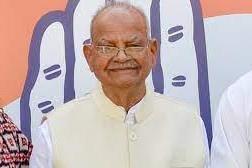
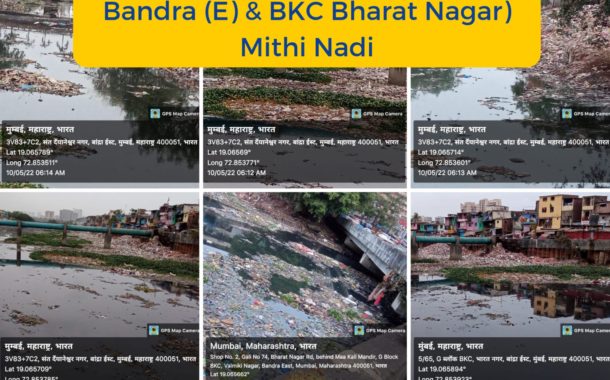
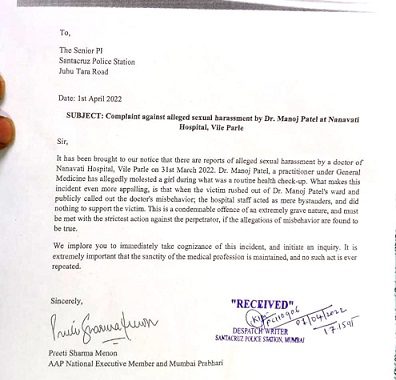

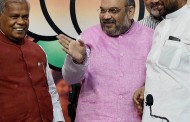
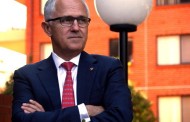
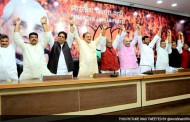

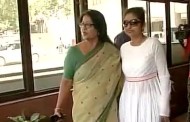

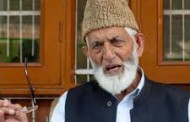
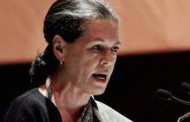






Recent Comments